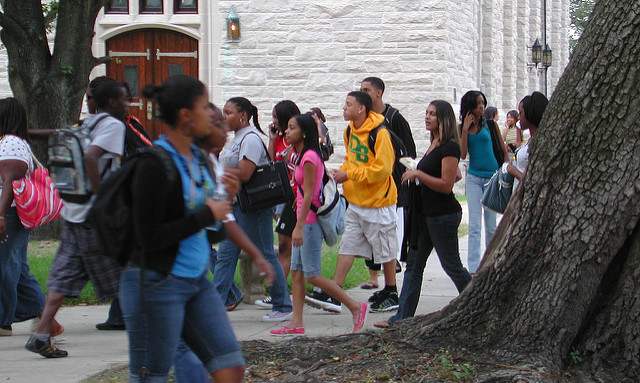What Do Grades Tell Us About Student Ability?

Back in grade school, I remember my teachers equating letter grades with intelligence and future success. This was always perplexing to me because I knew that this was not always the case. Sure, many of the students who received good grades had high IQs, but many did not. Because of the way teachers weighted various assignments, one could receive an A simply by participating in class, turning in homework, completing classwork, and doing moderately well on assessments. This begs the question: what do grades tell us about student ability? That’s what we will discuss in this article.
Let’s dive right in
Based on what we know about how people learn, grades may not be the best indicator of a person’s learning ability or aptitude. Actually, research has shown that when many of us receive letter grades or percentage scores, we lose our intrinsic motivation for learning and education becomes an obligation, rather than a passion.
Should we place more emphasis on grades or on learning itself? If it’s the former, educators shouldn’t be surprised when students enroll in easier classes to increase their cumulative GPAs, rather than classes that are of personal interest to them and will challenge them intellectually. And we should not be surprised when elementary school teachers spend most of their time teaching math and reading because we know that an elementary school teachers job security is tied to literacy and numeracy.
When parents believe that grades and intellect are one and the same
When parents equate grades with learning ability and aptitude, they can start to believe that their child is way more or way less intelligent than they actually are. When grades and learning ability don’t match up, it can lead to some awkward situations. Case in point. I had a young lady in my class that was an extremely good student; perhaps a model student. However, the secret to her success was persistence and resilience. When it came to learning ability and aptitude, she was average, but her tenacity more than made up for it.
One day, her mother asked me if I would request that her daughter be tested for giftedness. I respectfully and compassionately denied her request, and I explained to her that although her daughter was a great student, I did not think she met the criteria for gifted education. Of course, she was a bit upset, but I had to stick to my professional assessment. Well, she found another teacher to do her bidding, and the child was tested.
It turned out that she did not meet the criteria and was denied entry into our school districts gifted program. The mother and daughter were crushed, and eventually, I received an apology for how the mother reacted to my perceived slight. This is one of those times when you wish you had of been wrong. You can’t blame a parent for wanting the best education for there child, so it was water under the bridge. Now that I am a parent, I more fully understand the fervor in which she initially defended her child’s intellectual ability. I would probably do the same for my son Matthias.
I told this story to illustrate what happens when parents and teachers equate grades to intellectual ability. At the other end of the spectrum, I have stories of C average students who I referred to gifted education. Although their grades labeled them as average, they had “beautiful minds” that needed to be challenged to work at an optimal level.
Concluding thoughts
When it comes to helping students master the material being taught, grades are very important. They tell us how well a student is progressing towards a benchmark, and let us know when they have mastered that benchmark. However, they can’t offer us definitive information about student ability or potential. Why, because there are so many ways to game the grading system. Also, some students have the ability and aptitude but are not fully engaged in the education process, and thus, their grades give us the impression that they are below average students, but there are not. In these instances, the student’s ability and aptitude are high, but their effort and engagement are low.





